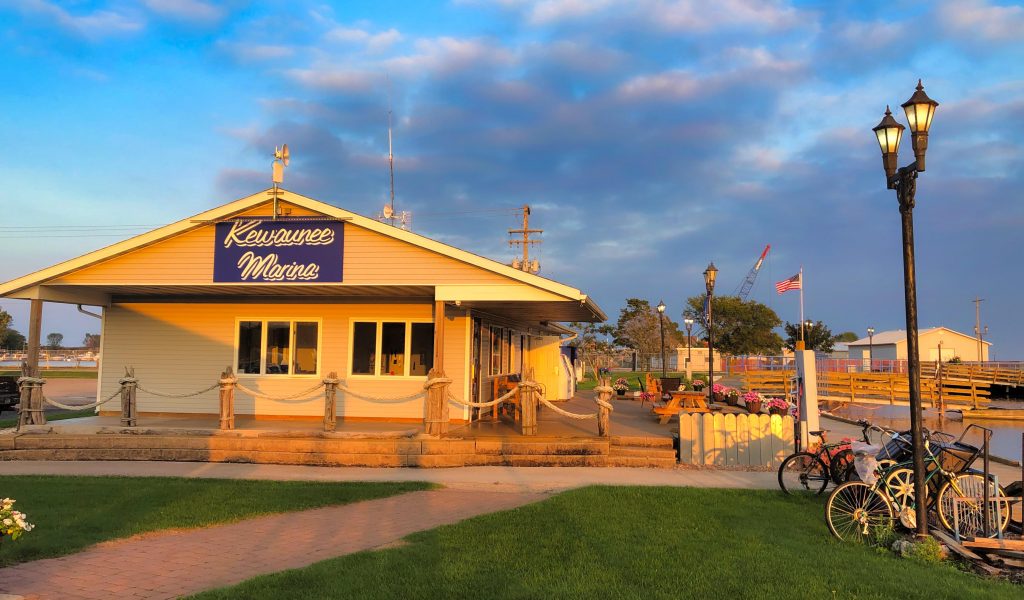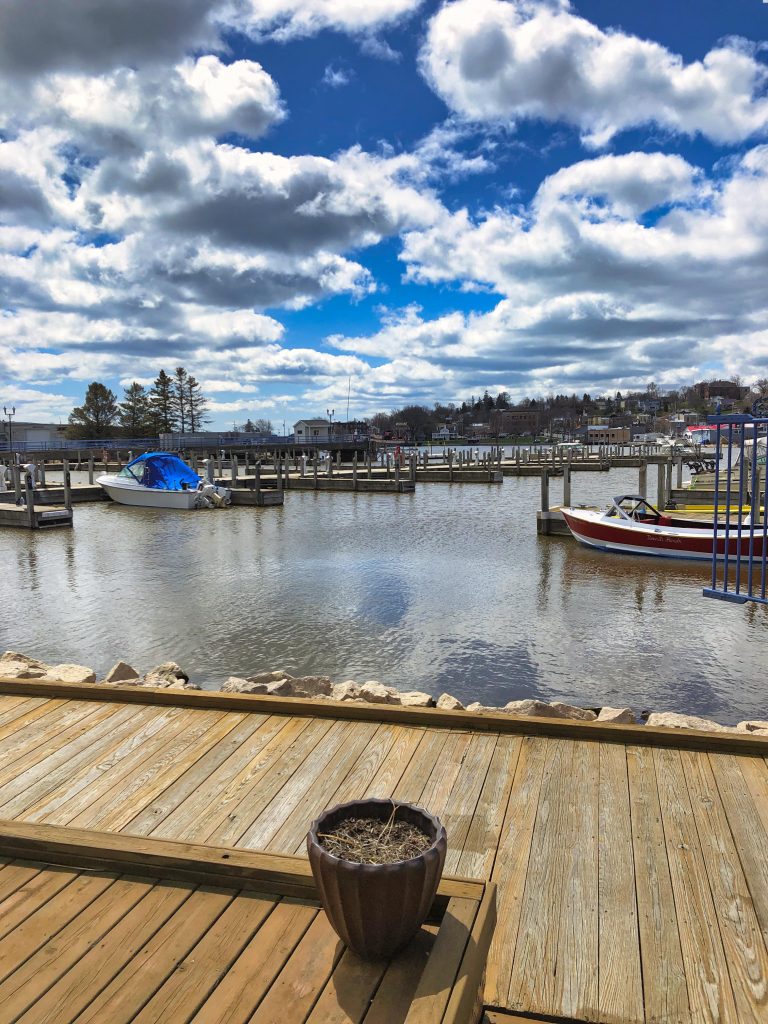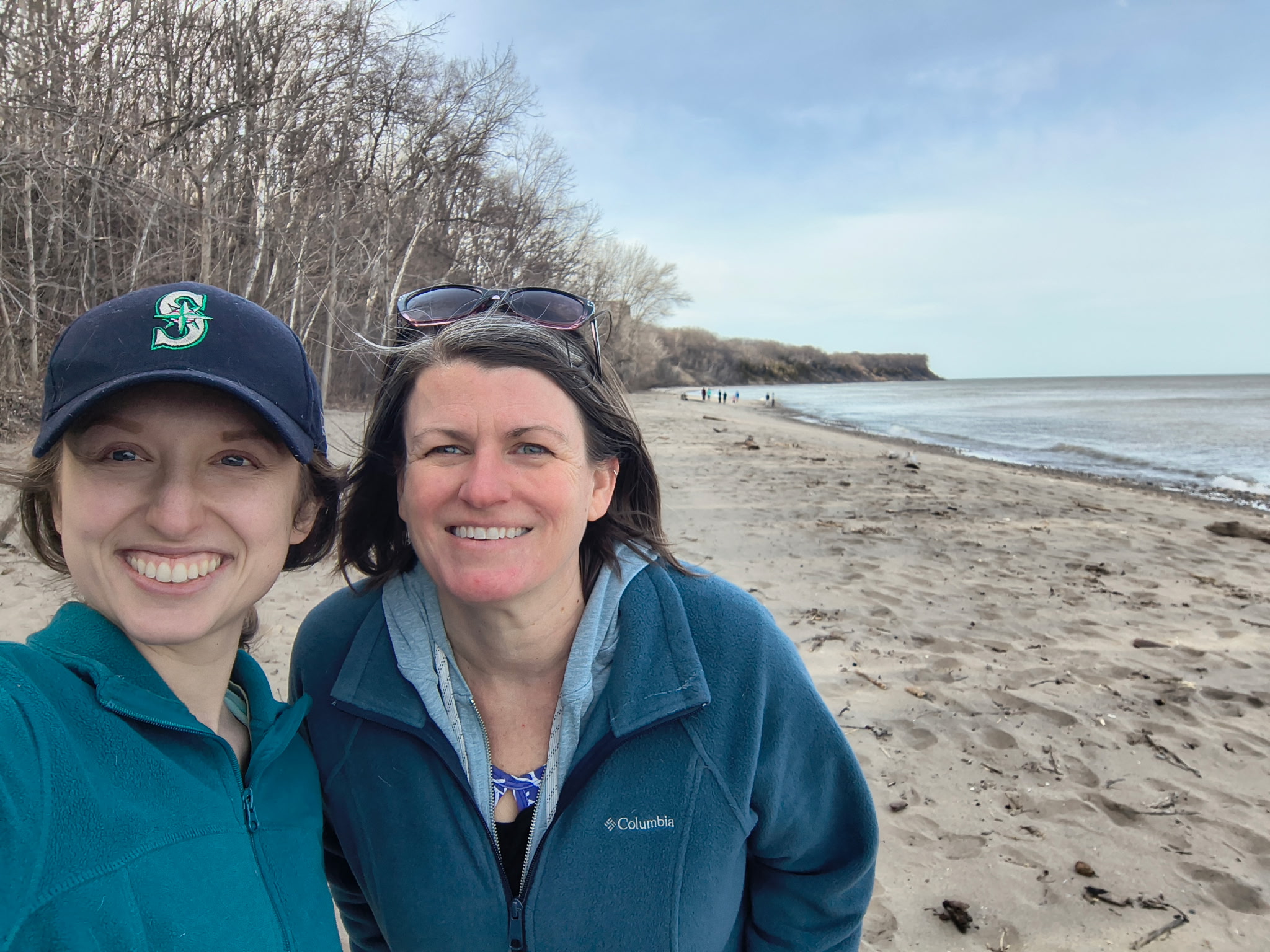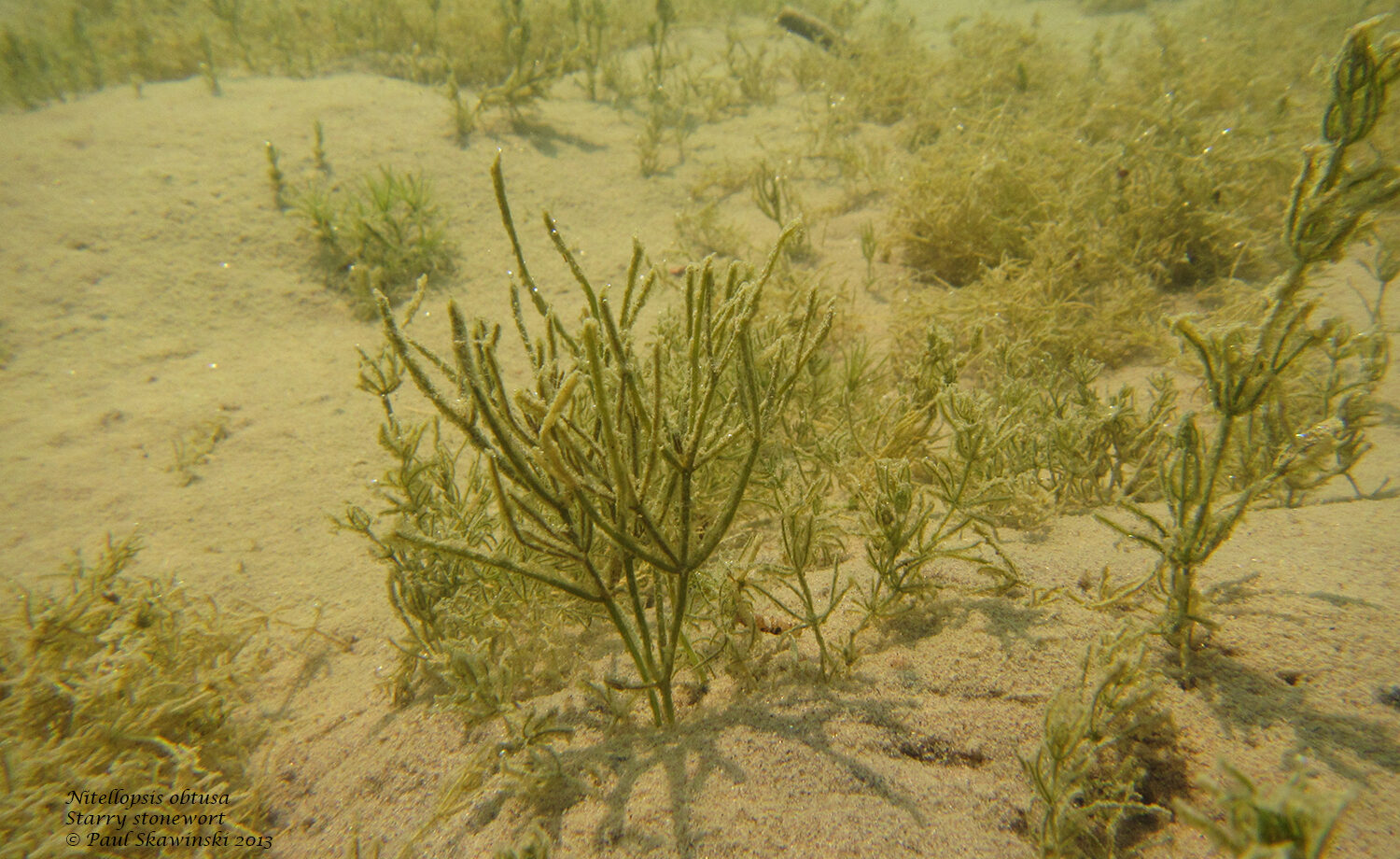
The Kewaunee Marina is working toward certification in the Clean Marina Program. Image credit: Theresa Qualls, Wisconsin Clean Marina Program
Staff at the city marina in Kewaunee, Wisconsin, were interested in voluntarily gaining certification as a clean marina, but several challenges faced them. Lucky for them, the Wisconsin Clean Marina Program not only certifies marinas in the state as environmentally friendly, it also helps them get to that point by providing guidance, training and technical assistance in adopting best management practices (BMPs) that reduce pollution and protect Wisconsin’s waterways.
The Kewaunee Marina sits on Lake Michigan at the base of the Door County peninsula. This 104-slip full-service facility is operated by the city, and features a public boat launch, parking lot, fish cleaning station and campground.
The marina would need to undertake several difficult and costly projects to improve coastal resilience and stay open during high-lake-level years. That’s where Clean Marina Program Coordinator Theresa Qualls comes in. Her program wrote a grant proposal to the Fund for Lake Michigan for money to develop a plan for two big-ticket items the marina needs: a boat washing station and stormwater improvements. The proposal was successful, and the engineering plan is now almost complete.
Once implemented, the boat washing station and stormwater improvements are expected to have major positive impacts on water quality and flooding. Qualls explained that boat washing stations are used at the end of the boating season in the fall. Boats are hauled out on land and their bottoms are pressure-washed to remove dirt and any growths that have accumulated. This usually takes place over the course of a month and involves many boats.

Once implemented, a new boat washing station and stormwater improvements are expected to have major positive impacts on water quality and flooding at the Kewaunee Marina. Image credit: Theresa Qualls
“Traditionally, all of that material would get washed right back into the lake, and the bottom paint kind of sloughs off,” said Qualls. “It can contain metals such as copper. It’s not good for the environment or for water quality and wildlife. So, practices are needed to either collect and treat the wastewater or divert it so it can settle in a different area.”
The plan for Kewaunee Marina involves installing a new boat washing station and directing the wash water into a rain garden, which will naturally clean the water as it filters through the sand and is soaked up by plant roots. The proposed station will also allow boaters to remove aquatic invasive species from their watercraft.
The marina’s large parking lot is prone to flooding, so other improvements include raising the level of the parking lot by 2 feet and planting three rain gardens that can help store up to an inch of rain from storms. “That will help with stormwater pollution as well, and should help solve the flooding issues,” said Qualls.
The engineering consulting company, Ruekert & Mielke, Inc., gathered public input on these plans last fall during a meeting held at the marina. “The people who came to the meeting were really engaged and stayed quite a while, and they had some good ideas,” Quall said.
The Kewaunee Marina engineering plan and cost estimates are expected to be completed by this March. Then Qualls will work with the city to find other grant opportunities for the on-the-ground work.
One hitch is that the boat washing station and the rain gardens can’t get put in until the parking lot gets raised. Qualls and the city will also be seeking funding for that. She is optimistic they can find a way to get all the work done.
“The city of Kewaunee and their public works department have been great partners,” she said. “The marina manager, Augie Kinjerski, has been just fabulous to work with. It’s been a great partnership. They’re all really supportive of this.”
Currently, the Clean Marina Program has 21 certified marinas and 24 pledged marinas. Certified marinas have implemented all the BMPs that are advised by the program. Pledged marinas are facilities that are in the process of becoming certified. Qualls said the Kewaunee Marina became pledged in 2021 and she expects they will become certified in the near future.
“We’ve found that boaters really care about the water and the water resources. They are supportive of this program. And we’ve found that these practices do help improve water quality. Marinas want to be part of it, and they’re really proud once they’re certified,” Qualls said.
For more information about the Clean Marina Program in Wisconsin and other Great Lakes states, take a look at this recent story and video.





